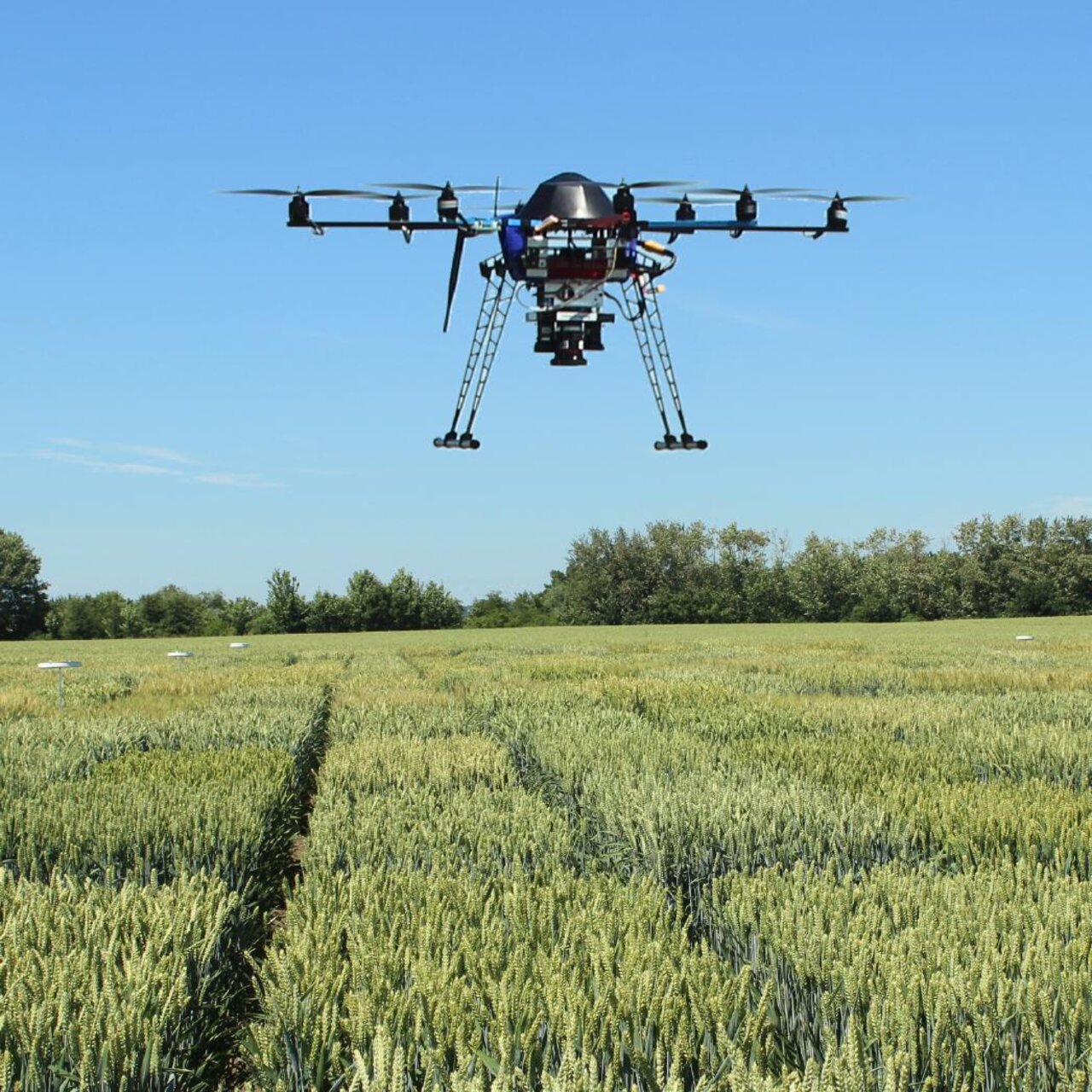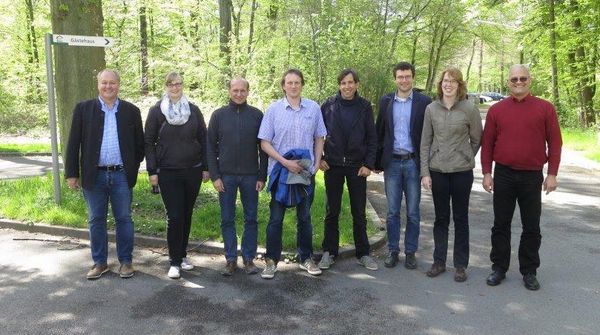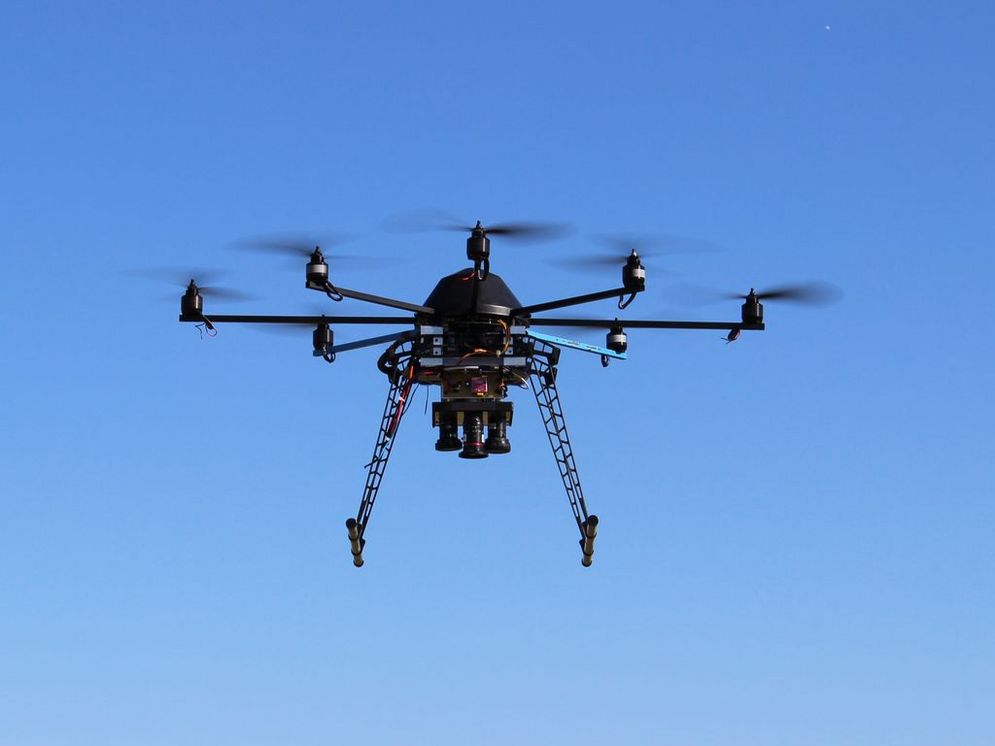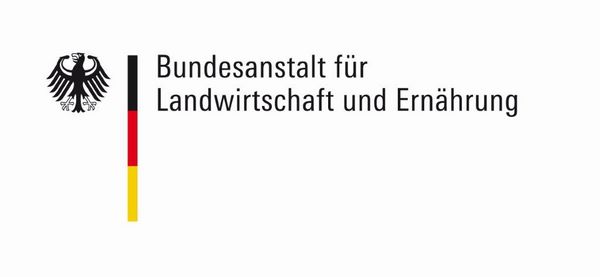Project
Phaenokopter

Which criteria could find drought tolerant varieties by breeding? Can be determine these criteria by remote sensing with unmanned air vehicles? Have drought tolerant varieties special root system characteristics? A cooperation between Thünen-Institute of Agriculture, Julius Kühn-Institute of Crop and Soil Science and Strube Research want to answer these questions by the project "Phaenokopter".
Project description
The project objectives are new insights and new methods for breeding high-performing wheat cultivars with improved adaptation to drought and heat stress. The project will examine how reliably the drought and heat tolerance of wheat genotypes can be assessed in a high throughput using multicopter-based sensor techniques. The project is also looking to answer the question whether specific genetic structures or characteristic phenological features have an increased disposition for drought and/or heat tolerance, and to what extent genotypic differences are caused by a different depth and intensity of root penetration.
Subprojekt 1
About 250 wheat genotypes of international origin will be cultivated on three selection sites with varying drought stress disposition. The areas will be overflown with an octocopter, equipped with a thermal, a color, and a near infrared camera. The multicopter-based high-throughput phenotyping will also be applied on a rain-out shelter facility where time, duration, and intensity of drought stress can be simulated and largely reproduced.
Subprojekt 2
Extensive accompanying root studies will be carried out, while continuously monitoring the soil water content. If there are significant associations between the development of roots and above-ground measured plant traits, this would open up new possibilities for indirect selection on root characteristics.
Subprojekt 3
In another experiment, the heat tolerance of wheat genotypes is examined. For this purpose a moderate heat stress is generated in a foil tunnel with temperature-controlled ventilation and at the same time an adequate water supply is provided to make sure that heat stress effects are investigated without superimposed drought stress effects.
Projekt team and task
The following partners are involved in this project:
from top left: Dr. Siegfried Schittenhelm (JKI), Katja Matschiner (Strube), Thomas Dietze (Strube), Heiko Neeland (TI), Lorenz Kottmann (JKI), Paul Martin Küpper (BLE), Tina Langkamp (TI) und Martin Kraft (TI)
| Institute of Agricultural Technology | ||
|---|---|---|
| Kraft, Martin | ⇒ | High-throughput screen by using multicopter, integration different camera systems to detect spectral reflection and canopy temperature |
| Neeland, Heiko | ||
| JKI, Institut of Crop and Soil Science | ||
|---|---|---|
| Kottmann, Dr. Lorenz | ⇒ | Examination of rooting depth, root morphology and water balance as well as phenological, physiological and chemical plant feature |
| Schittenhelm, Dr. Siegfried | ||
| Strube Research GmbH & Co. KG. | ||
|---|---|---|
| Matschiner, Katja | ⇒ | Provision of seed, installation and care of the trial areas as well as detection of phenological plant feature, yield and yield quality |
Publications on the project
- 0
Schittenhelm S, Langkamp-Wedde T, Kraft M, Kottmann L, Matschiner K (2020) Effect of two-week heat stress during grain filling on stem reserves, senescence, and grain yield of European winter wheat cultivars. J Agron Crop Sci 206(6):722-733, DOI:10.1111/jac.12410
- 1
Langkamp-Wedde T, Kottmann L, Matschiner K, Schittenhelm S, Kraft M, Balko C, Diefenbach E, Dietze T, Gottschalk H, Huf A, Jacobi A, Köhler CC, Mühlberger F, Neeland H, Peickert S, Schroetter S (2018) Abschlussbericht zum Forschungsvorhaben Fernerkundliche Beurteilung der Trocken- und Hitzetoleranz von Weizengenotypen auf Selektionsstandorten mit begleitenden Untersuchungen zu Durchwurzelungstiefe, Wurzelmorphologie und Wasserhaushalt (Phaenokopter) : Laufzeit des Vorhabens: 01.10.2014 - 31.05.2018. Berlin: BMEL ; ptble, 59 p

![[Translate to English:] [Translate to English:]](/media/_processed_/3/6/csm_Hintergrund-Ausschnitt1_9daaef6b89.jpeg)
![[Translate to English:] [Translate to English:]](/media/_processed_/3/6/csm_Hintergrund-Ausschnitt1_0bd7111163.jpeg)















